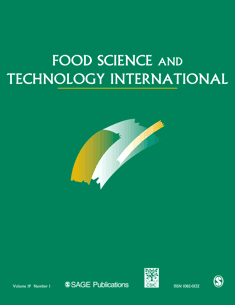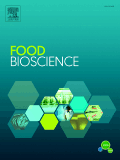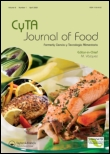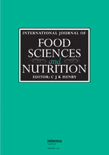
Foods
Scope & Guideline
Advancing Knowledge in Food and Health Sciences.
Introduction
Aims and Scopes
- Food Safety and Microbiology:
Research in this area addresses the prevention of foodborne pathogens, the effectiveness of preservation methods, and risk assessments related to microbiological safety in various food products. - Nutritional Science and Health Benefits:
This scope emphasizes the nutritional composition of food products, the bioactive compounds they contain, and their potential health benefits, including studies on dietary interventions and the effects of food matrices on health outcomes. - Food Technology and Processing Innovations:
The journal publishes studies on new processing techniques, innovative food formulations, and the development of functional foods that enhance nutritional value and sensory attributes. - Consumer Behavior and Food Perception:
This area explores consumer attitudes, preferences, and behaviors related to food choices, including the acceptance of novel foods and the influence of packaging and labeling on consumer decisions. - Sustainable Food Practices:
Research focusing on the sustainability of food production, waste valorization, and the use of alternative ingredients, such as plant-based proteins and by-products from food processing. - Functional Ingredients and Additives:
Investigations into the role of various food additives, including natural extracts, polysaccharides, and proteins, and their impact on food quality, safety, and health benefits.
Trending and Emerging
- Plant-Based and Alternative Proteins:
There is a significant rise in research focused on plant-based proteins and meat alternatives, driven by consumer demand for sustainable and health-conscious food options. This trend highlights innovations in food technology, such as the use of legumes and insects as protein sources. - Functional Foods and Bioactive Compounds:
Emerging interest in the health benefits of functional foods, particularly those enriched with bioactive compounds, is evident. Research is increasingly focusing on how these compounds can prevent chronic diseases and improve overall health. - Food Waste Valorization:
Research addressing the sustainable management of food waste and the conversion of by-products into valuable food ingredients is gaining momentum, reflecting a broader commitment to sustainability in food systems. - Food Authenticity and Traceability:
With growing concerns about food fraud and safety, research into methods for ensuring the authenticity and traceability of food products is on the rise, utilizing advanced technologies such as DNA barcoding and machine learning. - Consumer Health and Food Choices:
The intersection of consumer behavior and health implications of food choices is increasingly being explored, particularly in the context of dietary trends and public health initiatives.
Declining or Waning
- Traditional Food Preservation Methods:
Research on conventional preservation techniques, such as canning and salting, has decreased as newer, more innovative methods gain traction, such as high-pressure processing and cold plasma treatments. - Animal-Based Food Products:
The emphasis on research related to traditional animal-based products appears to be waning, as there is a growing focus on plant-based alternatives and sustainable protein sources. - Chemical Additives and Synthetic Preservatives:
Papers concentrating on synthetic additives and preservatives have become less prevalent, likely due to increasing consumer preference for clean-label products and natural alternatives. - Regional and Traditional Foods:
The exploration of specific regional and traditional foods is becoming less common as the journal shifts towards broader, globally relevant food science topics and innovations. - Single Nutrient Studies:
Research focusing solely on individual nutrients is declining, with a growing preference for studies that consider the overall dietary patterns and their holistic effects on health.
Similar Journals

FOOD TECHNOLOGY AND BIOTECHNOLOGY
Advancing the Future of Food Science and BiotechnologyFOOD TECHNOLOGY AND BIOTECHNOLOGY is a distinguished peer-reviewed journal published by the Faculty of Food Technology and Biotechnology, University of Zagreb, Croatia. Since its inception in 1993, this Open Access journal has become a crucial platform for disseminating innovative research in the fields of food science, biotechnology, and chemical engineering. With a commendable impact factor and consistent Q2 and Q3 rankings across multiple categories—including Biotechnology, Food Science, and Industrial Engineering—this journal not only fosters academic discussions but also addresses real-world challenges in food production, safety, and sustainability. As it converges its thematic scope from 1996 to 2024, FOOD TECHNOLOGY AND BIOTECHNOLOGY remains committed to advancing knowledge through high-quality research and interdisciplinary collaboration, making it an essential resource for researchers, professionals, and students seeking to stay at the forefront of food innovation and biotechnology.

FOOD SCIENCE AND TECHNOLOGY INTERNATIONAL
Connecting professionals to the latest in food science advancements.FOOD SCIENCE AND TECHNOLOGY INTERNATIONAL, published by SAGE Publications Ltd, is a premier journal in the fields of food science and technology, serving as a crucial platform for the dissemination of innovative research and practical applications from 1995 through to 2024. With an impact factor reflecting its significant standing—ranking in the Q2 quartile for Chemical Engineering, Food Science, and Industrial and Manufacturing Engineering—this journal plays an instrumental role in advancing the interdisciplinary study of food systems. Researchers, professionals, and students can access high-quality contributions that address the latest developments and trends in food technology, safety, and processing. Located in the United States, FOOD SCIENCE AND TECHNOLOGY INTERNATIONAL also boasts commendable Scopus rankings, ensuring its articles are both relevant and widely cited within the academic community. As a vital resource for anyone engaged in food science research, этот журнал fosters knowledge sharing and innovation in the ever-evolving landscape of food technology.

Current Research in Food Science
Advancing Knowledge in Food ScienceCurrent Research in Food Science is a leading peer-reviewed academic journal published by Elsevier, specializing in the dynamic field of food science. Since its transition to an Open Access model in 2019, the journal has broadened its reach, contributing significantly to the dissemination of high-quality research. With strong rankings, including a Q1 quartile status in Applied Microbiology and Biotechnology, Biotechnology, and Food Science, it stands out as a pivotal resource for scholars. Based in the Netherlands, current research published within its pages spans a wide range of relevant topics, ensuring that researchers and practitioners stay abreast of the latest advancements. The journal's impressive Scopus rankings enhance its credibility, with a percentile standing in the 74th to 83rd range across relevant categories, underscoring its impact and importance in the academic community. Current Research in Food Science aims to foster the exchange of innovative ideas and foster collaborative efforts among researchers, making it an essential resource for those engaged in advancing the science and technology of food.

FOOD TECHNOLOGY
Exploring the Future of Food TechnologyFOOD TECHNOLOGY, published by the Institute of Food Technologists, is a pivotal journal dedicated to the advancement of knowledge and innovation in the food industry. With its ISSN 0015-6639, this esteemed publication aims to bridge the gap between food science research and practical applications, addressing ongoing challenges and technological advancements in food production, preservation, and safety. Although currently not an open-access journal, FOOD TECHNOLOGY continues to serve as a critical resource for food scientists, engineers, and industry professionals seeking to stay at the forefront of emerging trends and research in the field. Recognized for its impact within the academic community, it holds a Q4 ranking in Chemistry, Food Science, and Industrial and Manufacturing Engineering categories, reflecting its importance in disseminating valuable information. Researchers and practitioners alike will find in its pages a wealth of insights that can influence practices and policies in food technology. The journal's editorial team, committed to upholding rigorous standards, ensures that each issue is a thorough representation of high-quality research and a valuable addition to the body of food science literature.

Food Bioscience
Unlocking Knowledge for Tomorrow's Food ChallengesFood Bioscience is a leading peer-reviewed journal published by Elsevier, dedicated to advancing the understanding of the complex interplay between food science and biosciences. With an impressive Impact Factor that places it in the Q1 and Q2 quartiles for Food Science and Biochemistry respectively, the journal consistently ranks among the top publications in its field, reflected in its Scopus rankings (Rank #83/389 in Food Science and Rank #175/438 in Biochemistry). Since its inception in 2013, Food Bioscience has fostered a multidisciplinary approach, bridging gaps between research in agricultural, biological, and food sciences, thus encouraging innovative solutions to the pressing challenges facing the global food supply chain. Although it currently operates under a subscription model, the journal is committed to disseminating high-quality research, making significant contributions to both academic scholarship and industry practices. Researchers, professionals, and students alike are invited to explore the wealth of knowledge contained within its pages as it plays a pivotal role in shaping the future of food bioscience.

eFood
Transforming food systems with open-access knowledge.eFood is a pioneering journal in the field of food science, published by the esteemed WILEY. With its impactful emergence, the journal has rapidly established itself within the academic community, evidenced by its impressive Q1 category ranking in Food Science as of 2023, and a commendable position at Rank #95 out of 389 in the Scopus database. Covering a wide spectrum of topics related to food innovation, technology, safety, and nutrition, eFood serves as an indispensable platform for researchers, industry professionals, and students who are at the forefront of advancing our understanding of food systems. The journal notably operates with an open-access model, promoting wide dissemination of knowledge while enhancing the visibility of high-quality research. As we look forward to converging years from 2020 to 2024, eFood is poised to foster rigorous scientific discourse and contribute significantly to the future of food science research.

CZECH JOURNAL OF FOOD SCIENCES
Elevating Standards in Food Safety and QualityCzech Journal of Food Sciences is a premier publication in the field of food science, disseminating vital research since its inception in 1999 and transitioning to Open Access in 2007. Published by the Czech Academy Agricultural Sciences, this journal facilitates the exchange of knowledge among researchers, professionals, and students dedicated to advancing the understanding of food systems, safety, and technology. With an ISSN of 1212-1800 and an E-ISSN of 1805-9317, it holds a respectable position with a Q3 ranking in the Food Science category for 2023, illustrating its commitment to high-quality research despite its Scopus rank of 209 out of 389, situated in the 46th percentile. Located in the heart of the Czech Republic, at TESNOV 17, PRAGUE 117 05, this journal serves as an essential resource for those involved in agricultural and biological sciences, paving the way for innovative discoveries and applications in food science.

CyTA-Journal of Food
Advancing food science for a sustainable future.CyTA-Journal of Food is a prestigious academic journal published by TAYLOR & FRANCIS LTD, dedicated to advancing the field of food science and technology through the dissemination of innovative research and practical knowledge. With an ISSN of 1947-6337 and an E-ISSN of 1947-6345, this journal stands out with its strong impact factor and is currently placed in the Q2 quartile across multiple categories, including Chemical Engineering, Chemistry, and Food Science, making it a vital resource for researchers and professionals alike. The journal has been an integral part of the academic community since its inception in 2009, and continues to publish cutting-edge articles through to 2024. Its alignment with Scopus ranks further signifies its influence, notably achieving 67th percentile in Industrial and Manufacturing Engineering. As an Open Access journal, it ensures widespread accessibility to its valuable content, promoting collaboration and knowledge sharing among scientists, engineers, and students dedicated to enhancing food safety, quality, and sustainability.

Food Production Processing and Nutrition
Transforming food systems for public health excellence.Food Production Processing and Nutrition, published by SpringerNature, stands at the forefront of advancing knowledge in the vibrant fields of food science, nutrition, and public health. This esteemed Open Access journal, operational since 2019, plays a pivotal role in disseminating breakthrough research that intersects food production processes with nutritional insights, making it an invaluable resource for researchers, professionals, and students alike. With a commendable 2023 impact factor reflecting its robust scholarly contributions — Q1 in Food Science and Q2 in both Nutrition and Dietetics and Public Health, Environmental and Occupational Health — the journal not only emphasizes the importance of innovative food processing methods but also addresses pressing nutritional challenges faced globally. Located in the United Kingdom, it claims an impressive Scopus ranking, with a notable percentile standing across various categorical metrics. As such, Food Production Processing and Nutrition is essential for anyone aiming to deepen their understanding of how food systems impact public health through effective processing and nutritional strategies.

INTERNATIONAL JOURNAL OF FOOD SCIENCES AND NUTRITION
Navigating the complexities of food and nutrition science.International Journal of Food Sciences and Nutrition, published by Taylor & Francis Ltd, is a premier, peer-reviewed journal that has established itself as a leading platform for the dissemination of cutting-edge research in the field of food science and nutrition. With an impressive Q1 categorization and an academic rank of #59/389 in Scopus’s Agricultural and Biological Sciences category, this journal is recognized for its significant impact, facilitating critical discussions and advancements related to food quality, safety, and nutritional health. Its historical significance, covering research from as early as 1947 to the present day, underscores the journal's long-standing commitment to scientific rigor and innovation. Researchers and professionals benefit from this journal's comprehensive and diverse range of studies, contributing to informed practices and developments in the food industry and public health. Although the journal is not open access, it provides various access options, ensuring that high-quality research is available to academics and practitioners alike. Stay connected with current trends and breakthroughs in food sciences and nutrition through this highly respected publication.